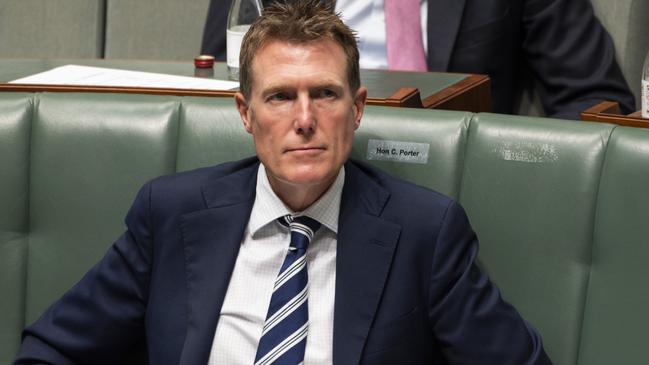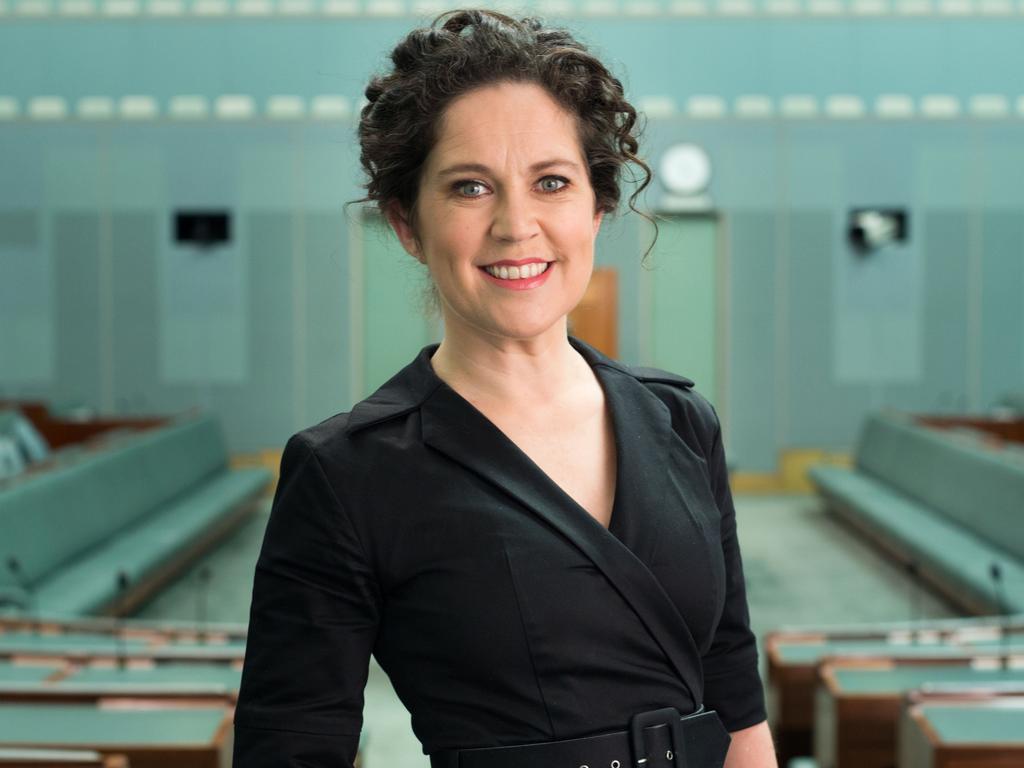ABC’s Christian Porter defence to remain secret
A Federal Court judge has blocked media outlets from publishing secret parts of the ABC’s defence to Christian Porter’s defamation action.

Media outlets have been blocked from publishing secret parts of the ABC’s defence to Christian Porter’s defamation action following a Federal Court ruling today.
Federal Court judge Jayne Jagot ruled on Tuesday morning that Nine and Nationwide News could not use copies of secrets parts of the ABC defence, which the media outlets obtained when intervening in the court action, other than for the purpose of the legal proceedings.
Justice Jagot previously agreed to remove 27 pages of the ABC’s defence from the court file — effectively preventing the material, which was damaging to Mr Porter’s reputation, from being accessed by the public.
Mr Porter, formerly Attorney-General and now Industry Minister, agreed in May to withdraw his defamation action against the ABC over its publication of historical rape allegations against him.
As part of their settlement, Mr Porter and the ABC agreed to seek a court order that the 27 pages of the ABC’s defence would be removed from the court file.
Mr Porter had claimed those parts of the defence were scandalous or vexatious but the court had not yet heard arguments about whether they should be struck out before the case was settled.
Lawyers acting for Nine and Nationwide News had obtained non-redacted copies of the ABC defence when they intervened in the legal action to argue the material should be made public.
They refused to agree to destroy or return their unredacted copies of the defence after Justice Jagot agreed the pages should be removed from the court file.
Barrister Barry Dean, acting for Mr Porter, told the Federal Court two weeks ago that the media organisations were under an implied obligation not to use the secrets parts of the defence for any purpose other than their intervention in the case.
However, Nine executive counsel Larina Alick, representing Nine and Nationwide News, had argued that preventing the media organisations from using the documents would be a “gross distortion” of the implied obligation.
“Christian Porter is bringing this application regarding a document that is not his own … seeking a safeguard against the ABC’s defence not because he owns it but because he does not like what is in it,” she said.
“To grant Mr Porter’s application would be a gross distortion of the original purpose and intention of the implied obligation.”
She said Mr Porter was effectively asking the court to protect his reputation, but damage to reputation was not a basis on which to suppress information in a case. Instead, she said parties needed to accept the damage to reputation that was inherent in litigation.
However, Justice Jagot rejected this argument. She ruled the media outlets could use the material only for the purpose of arguing in court over the making of a further or final suppression order, and ordered the media outlets to pay Mr Porter’s costs.
She said as soon as possible after the ABC’s defence had been filed, Mr Porter had sought a suppression over parts of the defence and his reply, which meant it had never been public. The unredacted copies were only provided to the media outlets for the purpose of their intervention in the case and were subject to interim suppression orders.
“A person obtaining documents in the circumstances in which the intervening parties obtained them in the present case should not be able to use the documents for any purpose other than the purpose for which they were provided access to the documents unless and until those documents are otherwise lawfully made public,” Justice Jagot said in her judgment.
To permit the media outlets to use the unredacted documents for any other purpose would “prejudice the proper administration of justice”, she said.
Justice Jagot said the implied obligation not to use documents received through compulsory court processes for any purpose other than the conduct of the proceedings — first articulated in a case known as Hearne v Street — was owed to the court and not to any individual party and attached to the documents in the present case, she said.
“This is not contrary to and involves no distortion of the purpose of the obligation,” Justice Jagot said.
“The purpose of the obligation is not confined to protecting the private interests of the person who has prepared the document. The purpose is to protect the administration of justice by ensuring that, to the extent practicable, a party subject to the compulsory procedures of the court is not subject to disadvantage by complying with those compulsory processes to any greater extent than is necessary having regard to the nature of the judicial function.”
The declaration was not being made to protect Mr Porter’s reputation, she said — even though that was a consequence of her making the orders. The only purpose of the declaration was to resolve the dispute between Mr Porter and the media outlets that had intervened in the case.
Mr Porter sued the ABC for defamation in May over an online article that said a Cabinet Minister was facing allegations he had raped a 16-year-old girl when he was 17 in 1988.
The ABC did not apologise for the article, which remains online, but it agreed to add a note that said the broadcaster did not intend to suggest that Mr Porter was guilty of the allegations.






